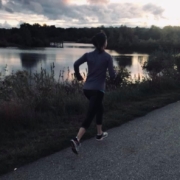What if Parents of an Athlete with an Eating Disorder Are in Denial? Q&A with Dr. Paula Quatromoni
In this Q&A series, Dr. Paula Quatromoni (DSc, RD) answers some of the biggest questions coaches and athletic staff have to better prevent eating disorders in athletes, and assist athletes who may be struggling. Sign up for our email list to get more Q&As/stories like this directly to your inbox.
Q: What do you do when parents are in denial about their athlete struggling with a possible eating disorder, even when the athletic trainer is in on that conversation?
This is a common question from coaches. With this context, we will take this question as being posed by a coach. Since there is an expectation of parental involvement, we will assume that this is an adolescent (middle- or high-school athlete) rather than an adult/collegiate athlete.
A: Presenting concern about a possible eating disorder to parents requires a lot of sensitivity, empathy, and professional competence and confidence. It should not be entered into lightly, and it should not be entered into without objective data, documented observations, an informed action plan, and a set of recommendations and referrals.
This is a context where the Athletic Trainer (AT) needs some specialized training as well as some policies and procedures in place with the support of Athletics Administration. The AT is the licensed health professional at the center of the athlete care team. In a high school setting, the AT constitutes the accessible core of sports medicine expertise available to athletes on a daily basis. In a collegiate setting, the AT staff have the back-up of the sports medicine physician(s) who may primarily be orthopedic specialists who attune to sports injuries. This means that if a sports medicine doctor is accessible, they may not be trained in recognizing or treating REDs (relative energy deficiency in sport), eating disorders, or the endocrine and hormonal disturbances that occur in the setting of a restrictive eating disorder. Also in the collegiate setting, there may be a sports dietitian, sport psychologist, and/or mental health counselor. These members of the multidisciplinary care team can support the actions of the AT when they work collaboratively as an eating concerns team. Rarely are these other health professionals available to athletes in the high school setting. Collaborating with the school counselor may, therefore, be appropriate in order to fully assess the situation and to help the AT prepare to communicate their concerns to the parents.










